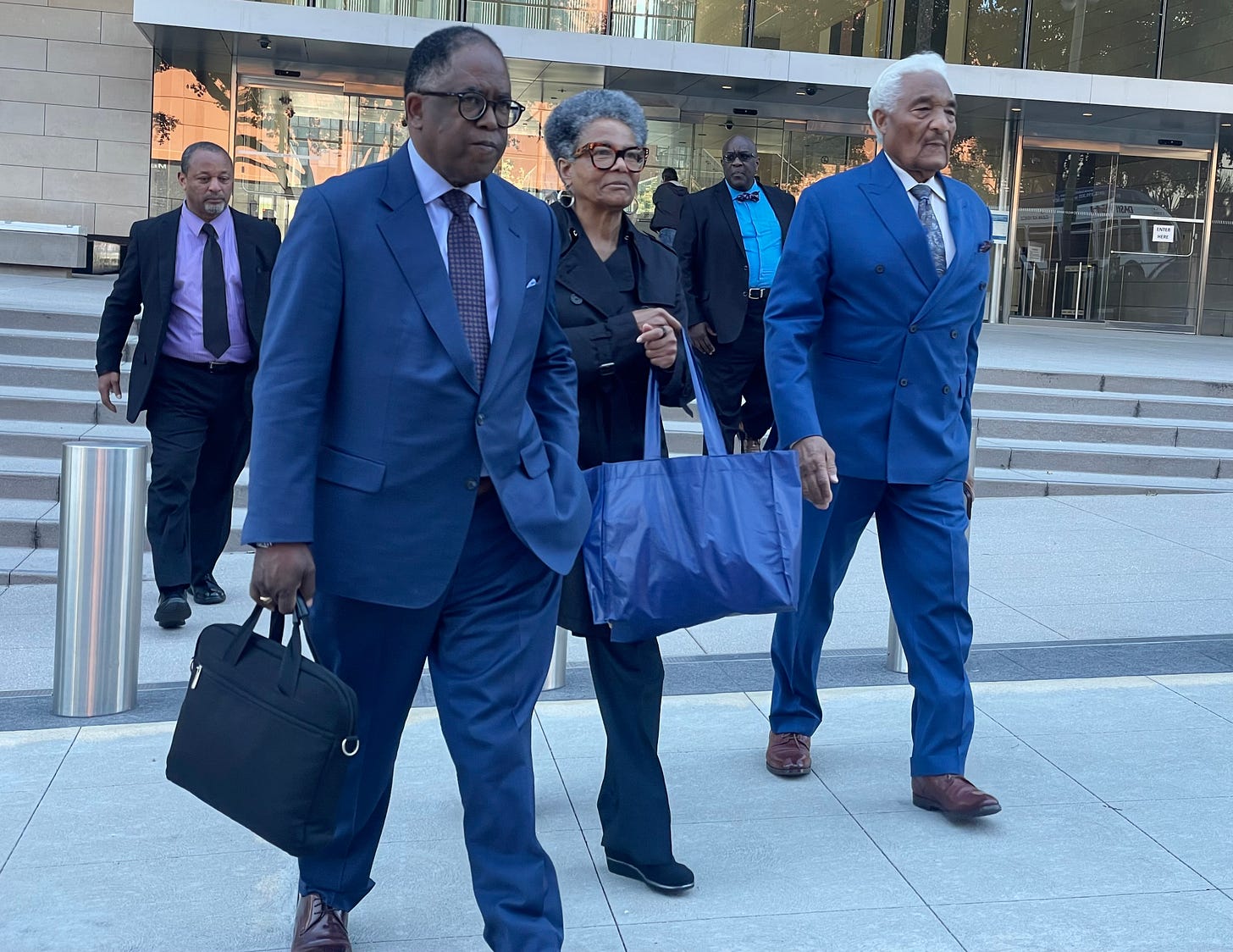'Does unlawful mean illegal?' Jurors in city councilman's USC bribery trial mull instructions
Prosecutors are concerned an instruction may be misleading jurors in Mark Ridley-Thomas' trial into believing they must find an additional unlawful act beyond bribery.

Jurors in suspended Los Angeles City Councilman Mark Ridley-Thomas’ federal corruption trial asked questions on Tuesday that indicate they’re continuing to …


